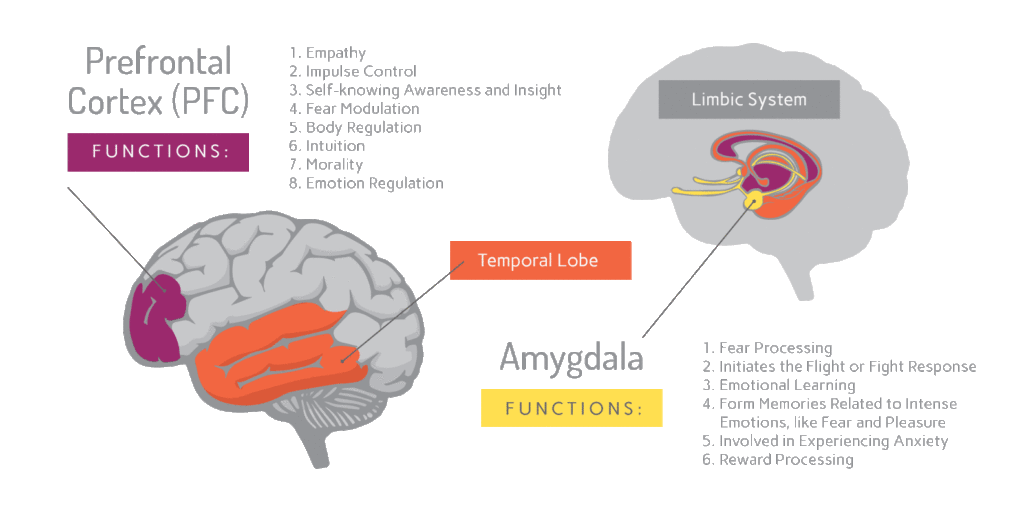

by Dr. Hy Gia Park and Dr. Charles Park
“Why do athlete’s commit suicide?”
Rashaan Salaam (1994 Heisman Trophy winner), Rick Rypien, Kenny McKinley (former Broncos player), Terry Long, Kerry Catlin, Tyler Hilinski, Madison Holleran… These elite athletes didn’t just share achievement and excellence traits. These athletes all died by their own hands. September is National Suicide Awareness and Suicide Prevention Month. In our ongoing series about clinical depression, we will examine how this brain disease impairs cognitive functions, the most serious of which leads to suicide.
Suicide is a leading cause of death worldwide and in the US. On any given day, over 2000 people die by suicide worldwide1; 129 of these occur across the US2 with 3 occurring specifically in Colorado.3 In nearly every state in the US, the suicide rate has increased by 25% from 1999 to 2016.4 Even more disturbing is that the World Health Organization estimates that for each adult who died by suicide there may have been more than 20 others attempting suicide.5 The significance of suicide to this ongoing exploration of the phenomenon called clinical depression is that two-thirds of individuals who commit suicide suffer from depression.6 As previously discussed in our August article, depression is more than just “sadness”, it is a chronic and debilitating neurological disease that should be treated like any other chronic disease like diabetes and heart disease.
Oxford dictionary defines a disease as a disorder of structure or function in a human that produces specific symptoms. Clinical depression results from brain dysfunction where the brain is abnormally stuck in the fight or flight mode (a.k.a. “the stress response”). Depression has strong genetic and environmental influences (e.g. concussions), and these influences seem to prolong this abnormal stress response. The structural changes and dysfunction seen in depression occurs in the vital front parts of the brain called the prefrontal cortex (PFC).7 To review, the PFC is responsible for the brain functions collectively called executive functions (i.e. planning, decision-making, problem-solving, self-control/impulse control, personality expression and appropriate social behavior). Scientists who have examined individuals who have attempted and/or completed suicide, found that the PFC has atrophied in these individuals. Scientists have also found similar loss of size in the temporal lobes, which is responsible for short-term memories, attention, language abilities, mood, and visual perceptions (dysfunction can cause hallucinations). Collectively, dysfunction in these two areas lead to the irrational decision-making seen in patients who attempt suicide. Along with this dysfunction and atrophy in the PFC and temporal lobe, those with suicidal behaviors also showed an over-activity in another crucial part of the brain called the amygdala. This structure is part of the limbic system, which is responsible for processing memories and learned behaviors tied to fear and anxiety. Between the underactivity of the PFC and temporal lobes and hyperactivity of the amygdala and limbic system, this imbalance leads to an over-response to fear and negativity, and irrational and inaccurate self-reflection, impaired decision making, and loss of impulse control. Individuals with depression can appear more like they have early dementia than “just feeling sad.” They often experience memory and concentration problems, will describe being easily overwhelmed by even the simplest of choices, and rigidly stick to only irrationally negative views of themselves and life events.

Deep Transcranial Magnetic Stimulation (dTMS), an FDA-approved depression treatment available since 2013, uses strong painless magnetic fields that specifically target the PFC. The focal targeting of the magnetic pulses has the benefits of reducing side effects seen in older treatments like medications and ECT. Medications distribute throughout many parts of the brain and body, so it is not surprising that they cause systemic side effects such as weight gain, sexual dysfunction, nausea, tremors, dry mouth, diarrhea, headaches, constipation, sweating, and sleepiness. While ECT is slightly more targeted to the brain, it does come with its own risks. ECT exposes patients to anesthesia and muscle relaxants and involves the use of electric currents to induce brief seizures to reverse depression symptoms. dTMS is completely different – there is no need for anesthesia or muscle relaxants and no seizure is triggered, which means no risks and complications from anesthesia, no confusion, no memory problems, and the recovery period after dTMS takes a few minutes compared to several hours with ECT. With dTMS the patient remains awake during the 20-minute treatment and can return to work or other daily activities immediately after the procedure. But what makes dTMS treatment even more impressive is the speed in which patients report improvement. Anecdotally, our patients report signs of improvement in concentration, memory, energy, and motivation typically by session fifteen. “When you are depressed, your reality is too much to handle and your tolerance for life is low. The world feels like it is caving in on you and you feel all this pressure.” This was how a 22 year old The Mind Store patient, describes her experience with depression. After she completed the entire dTMS protocol of 36 sessions, she shared that:
“TMS helped to raise my tolerance for life. It made life feel brighter and easier. I was able to feel a sense of peace with things as they are as opposed to all of it being too scary or too much to handle. That pressure was no longer there.”
We want to spread the important message that depression is a treatable condition and dTMS is a tolerable and effective treatment that can help to improve PFC functioning. Improvement in the depressed individual’s ability to fully experience, accurately and realistically interpret, and to effectively respond to life events is an obvious treatment outcome when we think about the loss of impulse control and irrationality seen in patients struggling with thoughts of suicide. Improved impulse control and reduction in irrational thought processes might be the difference between acting on thoughts of suicide versus reaching out to loved ones and seeking help. This improvement in split second decision-making opens up other hypothetical scenarios with this technology. For example, could it improve the split-second decision-making abilities in athletes, another group of young people at risk for depression and anxiety disorders due to the pressures they face in the 21st century?
References:
– A.P.
"Most caring, compassionate Dr; Dedicated to helping actually make me feel better and live a good full life."